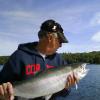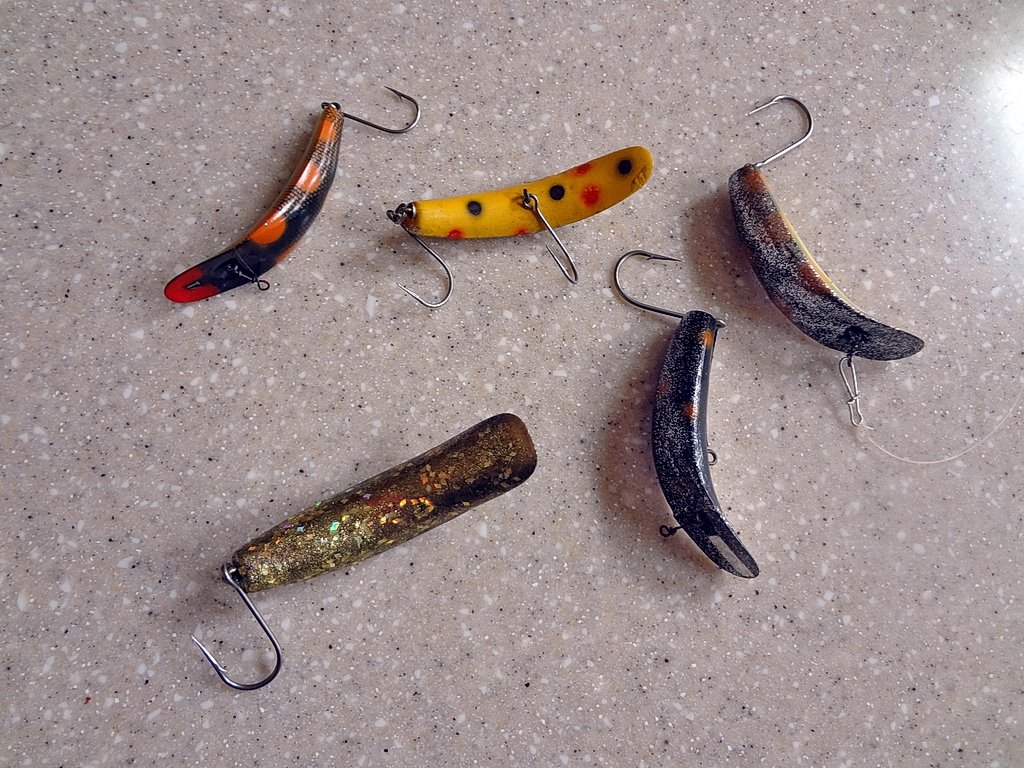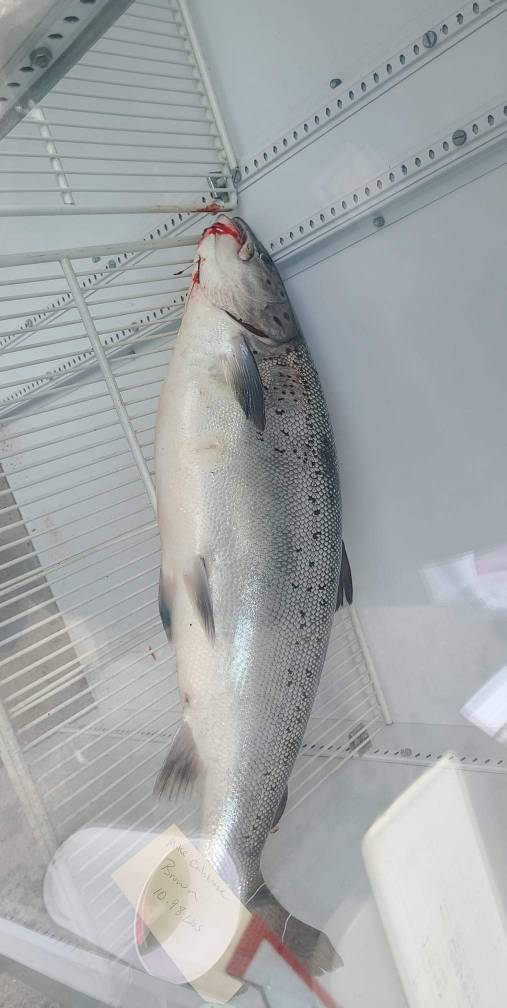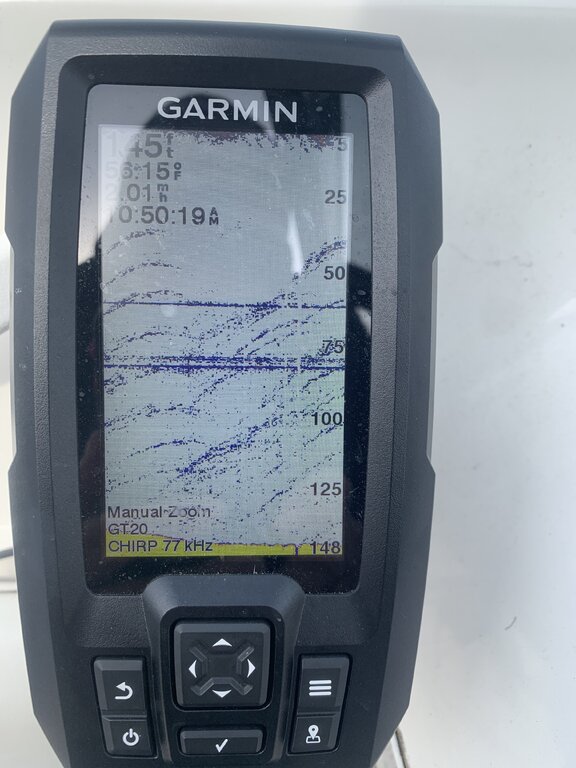-
Posts
261 -
Joined
-
Last visited
Bigfoot's Achievements
9
Reputation
-

Catherine Creek lamprey barrier
Bigfoot replied to Second Chance 22's topic in Finger Lakes Discussion
Trapping adult lampreys can be quite effective if you get them all. It can be costly as it is labor intensive and the captured eels are landfilled. However, since a female lamprey can lay 30,000 to 100,000 eggs, if a few pair escape/bypass the traps, the entire effort is pretty much a waste of time/money. -

Catherine Creek lamprey barrier
Bigfoot replied to Second Chance 22's topic in Finger Lakes Discussion
The effort required to eradicate them entirely would be cost prohibitive. The goal has always been to control their impact. -

Catherine Creek lamprey barrier
Bigfoot replied to Second Chance 22's topic in Finger Lakes Discussion
Hop. this was 11years ago. There was no special fund. We saw an opportunity to helpthe fishery and spent about $450 for the stainless fasteners. I'm not a member these days as I am retired to Florida. As I recall, the next Spring there was high water and the lampreys just swam around the barrier. -

Catherine Creek lamprey barrier
Bigfoot replied to Second Chance 22's topic in Finger Lakes Discussion
-
I will if I can find it. The device was a series of stainless steel plates attached to the face of the drop structure that the lampreys could not attach to and work their way over. DEC bought the plates just before the state imposed a spending freeze. FLTA donated the stainless fasteners so that the project could be completed.
-
Around 2009 DEC, with help from the FLTA, installed an experimental device on the first Catherine Creek pool digger upstream from the lake that was supposed to block the lamprey spawning run. Unfortunately, it didn't work. I posted pics on this site at the time.
-
These are two entirely different treatments using different chemicals. One is used for flowing water and the other is used for deeper waters with less current. First treatment targeted the main creek, second the canal.
-
If you are bringing your leaders into the boat you are wasting time and asking for tangles! And there is no need to! As you bring up the rig just lay out the line on the top of the water until the leader with the fish is encountered. That's the only leader that comes into the boat! Hard to describe, simple to learn once you've seen it done.
-
-
I'm not saying that DEC didn't know what the fish were. Nor was the call left up to the fishermen. I was a director (one of the Trollers Assn reps) of this event for several years and we were well aware of the ID problem. In those days we had many judges from other non profits who were not even fishermen. It has always been a problem to get volunteers on a holiday weekend. I know that when working at the Watkins weigh station it was not uncommon for contestants to misidentify there fish. This at times led to some "interesting" discussions.
-
In years past DEC staff were present only to gather data. They (in my experience) took great pains to avoid any action that could be interpreted as a "judging" function. So, they were reluctant to settle fish ID disputes. I know of one instance where a fish was misidentified and the DEC person said only " you need to take a second look at that fish".
-
Wind can drastically modify the thermocline pushing and stacking up warm water near one shore and rolling up cold water elsewhere. I remember one easterly troll on Cayuga near the silos where I took 3 lakers with the rigger set at 75FT on the west side and took a pickeral and a smallmouth bass on the same setting as I approached the east side! Rainbows sometimes will leave temp to find bait and they will also go deep to avoid sunlight (just like mysis shrimp). For what it worth my boat's PB bow was taken at 115ft!
-
At one time I experimented with this a great deal. I never had much luck taping the whole spoon or taping one edge. It just killed the balance and ruined the action. I did have success taping a thin band (maybe an half inch wide) across the middle of the spoon. I had one that was lime green taped that was a real killer on Cayuga, raspberry tape worked for rainbows, and orange worked well for browns. Sorry, no pics available. These were all in the Sutton 44.
-
Seneca tribs are scheduled for treatment in 2021.
-
In my teen years I hunted a neighboring property quite a lot. The 50 acre chunk had once been mostly pasture but it had been converted into commercial Christmas tree production. So, the area was mostly pines/furs with hardwood hedgerows marking the edges of the former pastures. There were just 3 apple trees that I can recall and they were vastly different. Tree number one was a large mature tree mostly surrounded by pines. It produced yellow apples in enormous quantities and I don't think anything ate them. There would still be hundreds on the ground, even in mid- April. Tree number two was about 20 yards down the hill from tree one. It produced apples that were red and yellow. The critters cleaned up the apples daily and you could pretty much count on them being all gone before gun season. The third tree was in a small hardwood patch. It was being out competed for sunlight by the surrounding hardwoods. Instead of having the classic shape of an apple tree, it was a beanpole. It produced very few apples. Once while bowhunting (in a tree stand) I saw a button buck come and search the area. Not finding any, he worked his way into a dense thicket. About 5 minutes later an apple fell to the forest floor. Much to my surprise the little buck retuned on the dead run to claim that apple. It was all I could do to not laugh out loud.





